Cheat Sheet: Election Commission | Indian Polity for UPSC CSE PDF Download
Introduction
This chapter explains the Election Commission of India (ECI), a key body that ensures free and fair elections for the country’s democracy. It covers the ECI’s structure, history, powers, vision, and challenges, showing how it upholds India’s electoral process for Parliament, state legislatures, and top offices like the President and Vice-President.
Composition of the Election Commission
The Election Commission, established under Article 324, is a permanent, independent body led by the Chief Election Commissioner and other commissioners, appointed by the President to oversee national and state elections.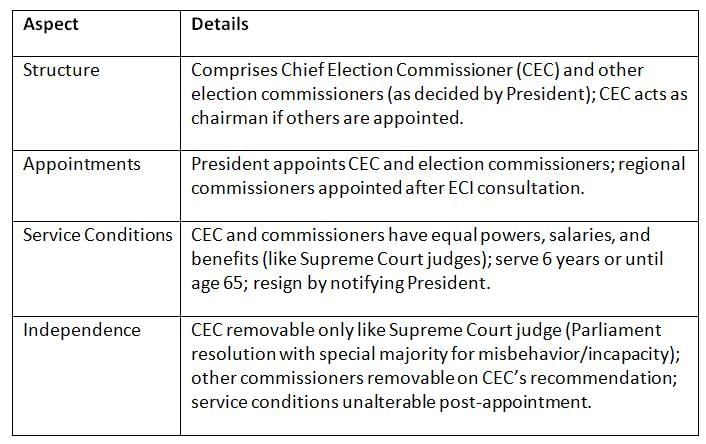
Key Points: The ECI’s multi-member structure, led by the CEC, ensures independent election management, with strong constitutional protections for impartiality.
History of the Election Commission
Since its inception in 1950, the ECI’s composition evolved from a single-member body to a multi-member setup to handle growing electoral demands.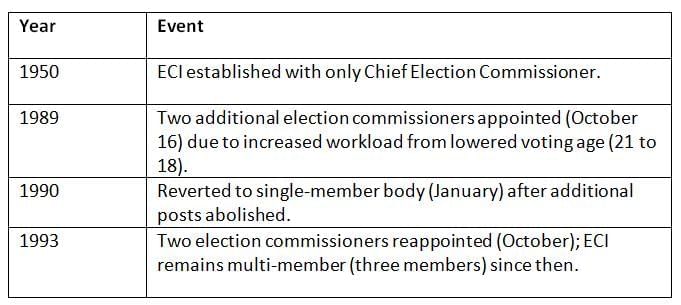
Key Points: The ECI transitioned to a multi-member body in 1993 to manage complex elections, reflecting its adaptability to electoral needs.
Independence of the Election Commission
Article 324 safeguards the ECI’s independence, but gaps in appointment processes and lack of defined qualifications have raised concerns, addressed partly by the 2023 Anoop Baranwal case.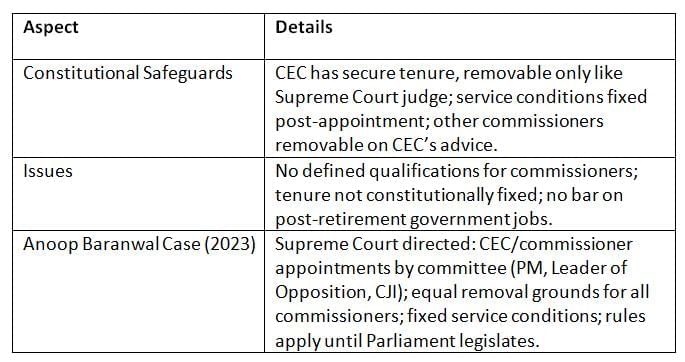
Key Points: The ECI’s independence is constitutionally protected, but judicial interventions aim to enhance transparency and neutrality in appointments.
Powers and Functions of the Election Commission
The ECI’s responsibilities span administrative, advisory, and quasi-judicial roles to ensure smooth, fair elections across India.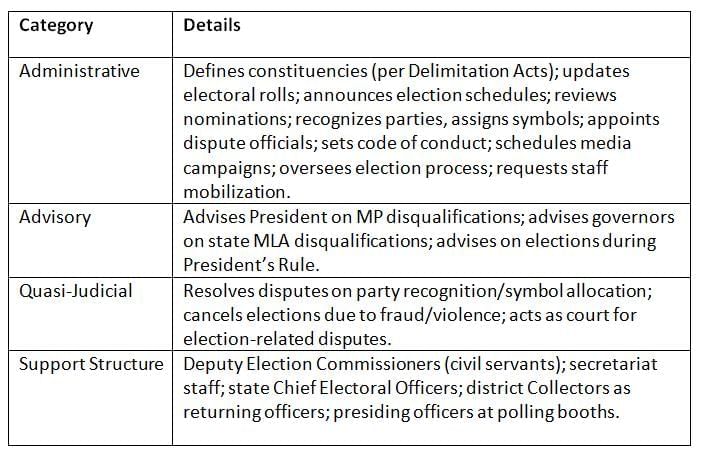
Key Points: The ECI’s broad powers ensure effective election management, supported by a robust administrative framework at national and state levels.
Vision, Mission, and Guiding Principles
The ECI’s vision and mission focus on fostering an inclusive, transparent electoral process, guided by principles that uphold democratic values.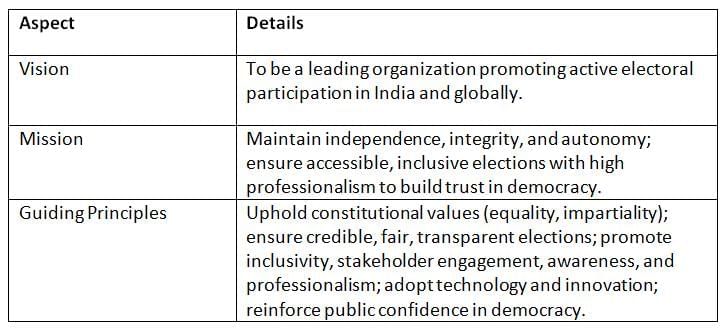
Key Points: The ECI aims to strengthen democracy through inclusive, transparent elections, guided by constitutional and professional standards.
Importance of the Election Commission
Since 1952, the ECI has played a critical role in sustaining India’s democracy by conducting credible elections and enforcing electoral integrity.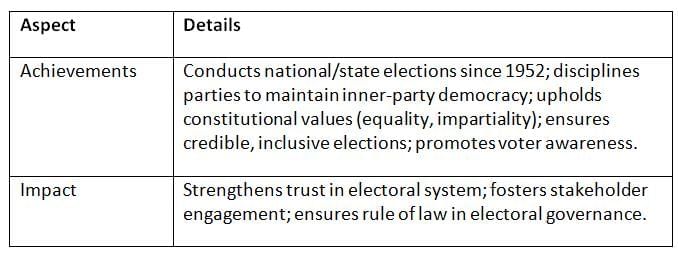
Key Points: The ECI’s consistent efforts uphold India’s democratic framework, ensuring fair elections and public trust.
Major Challenges and Way Forward
Despite its successes, the ECI faces challenges like rising money power, criminalization in politics, and concerns over its independence, requiring reforms to maintain credibility.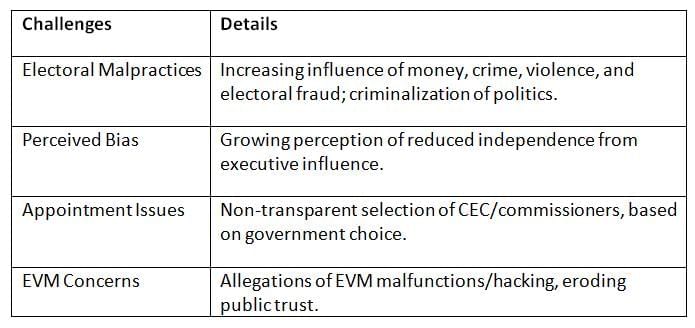
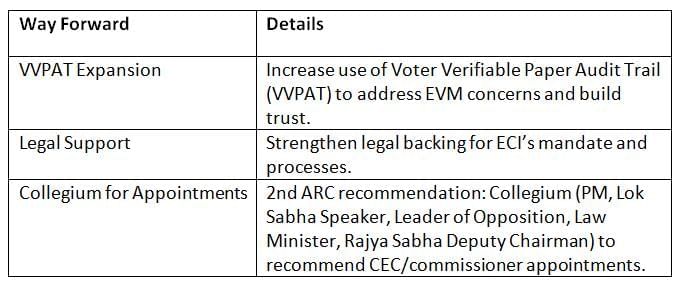
Key Points: The ECI must address malpractices, transparency issues, and EVM concerns through reforms like VVPAT expansion and collegium-based appointments to maintain trust.
Chronology for Quick Revision
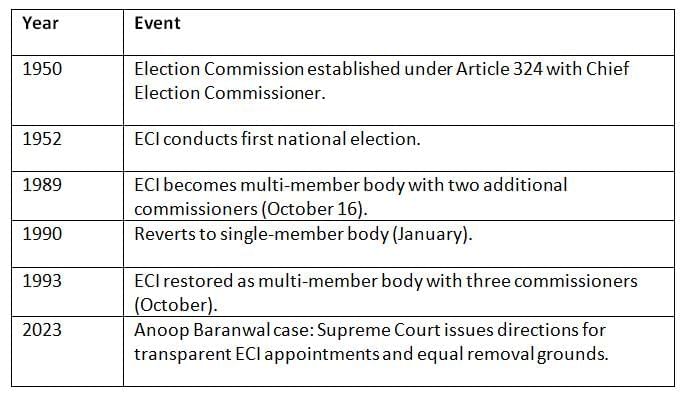
Conclusion
This chapter underscores the Election Commission of India’s vital role in sustaining the world’s largest democracy. Through its independent structure, broad powers, and commitment to fair elections, the ECI ensures public trust in the electoral process. Despite challenges like electoral malpractices and transparency concerns, reforms like VVPAT expansion and transparent appointments can strengthen its credibility. The ECI’s work is essential for upholding India’s democratic values and ensuring inclusive, credible elections.
|
142 videos|777 docs|203 tests
|
FAQs on Cheat Sheet: Election Commission - Indian Polity for UPSC CSE
| 1. What is the composition of the Election Commission, and who are the key officials involved? |  |
| 2. What is the historical background of the Election Commission, and when was it established? |  |
| 3. How does the Election Commission maintain its independence? |  |
| 4. What are the main powers and functions of the Election Commission? |  |
| 5. What are some major challenges faced by the Election Commission, and what could be the way forward? |  |





















